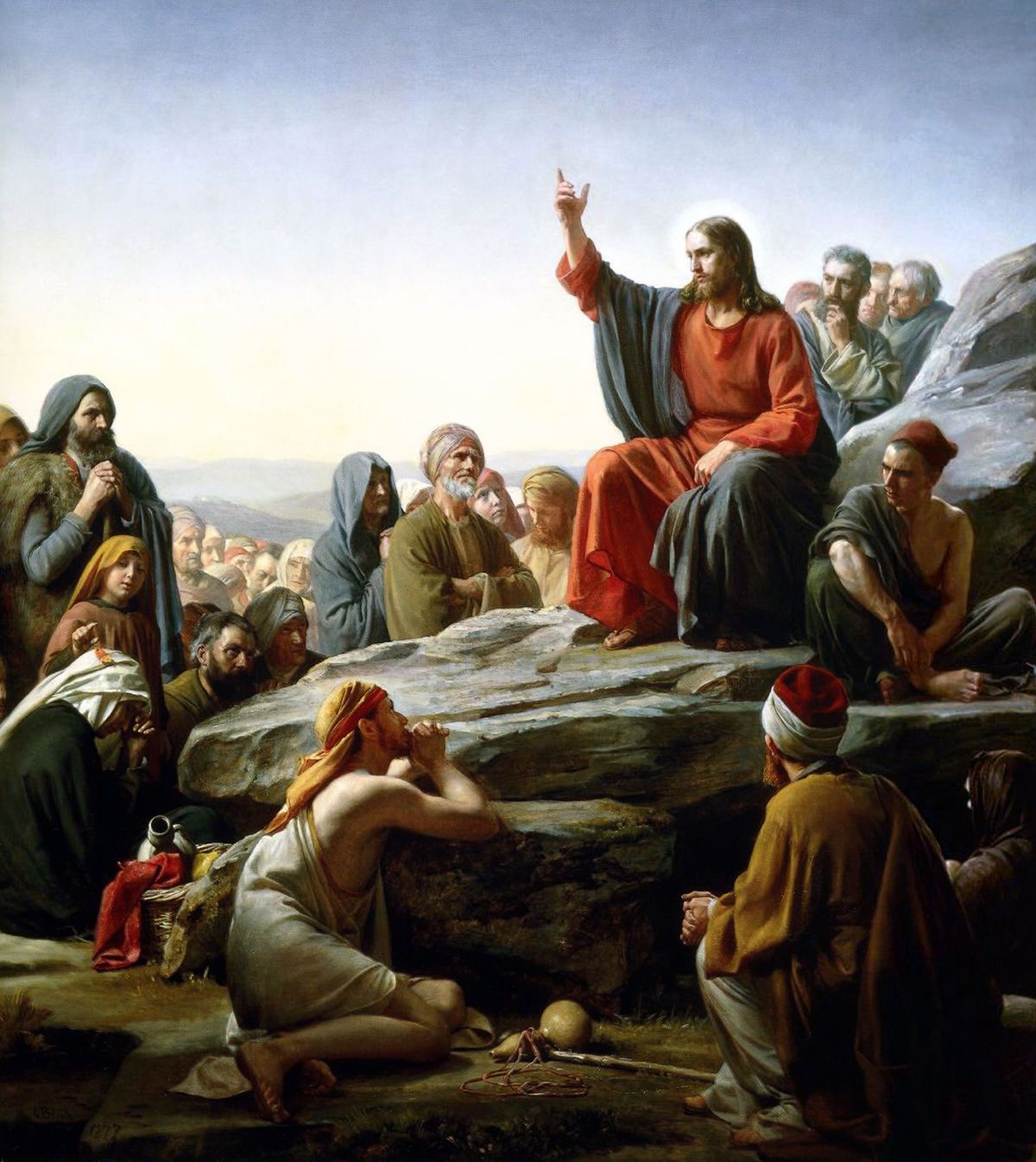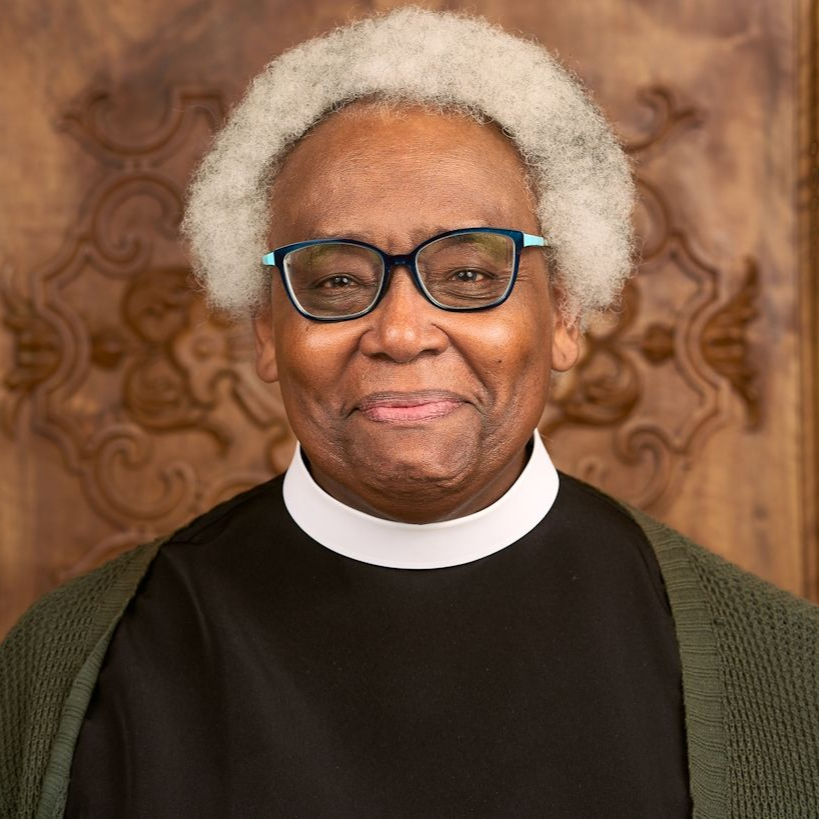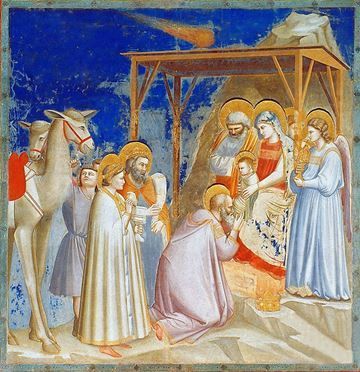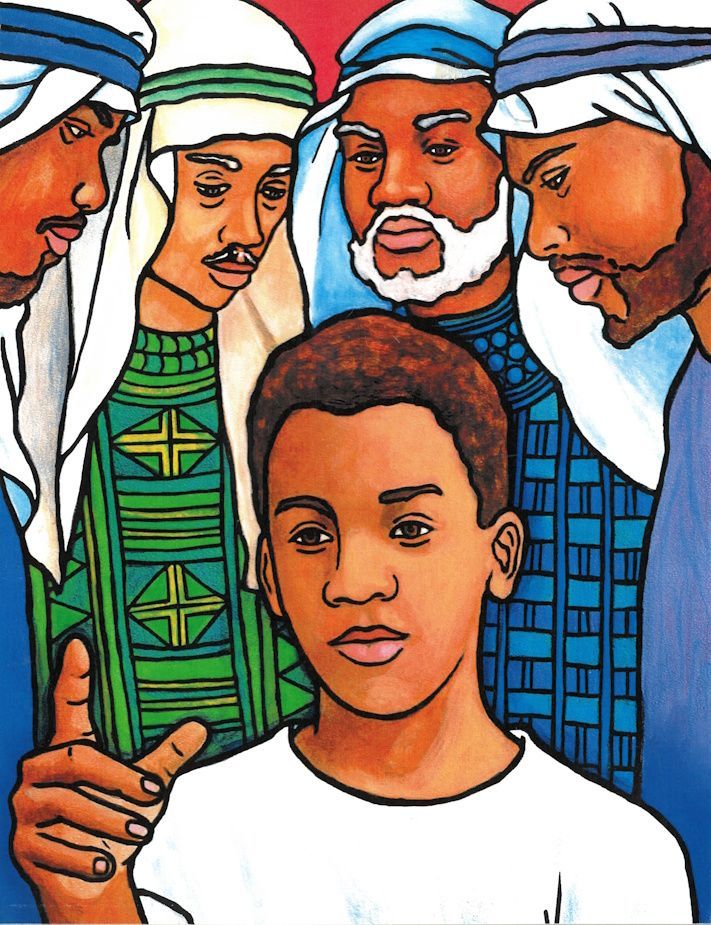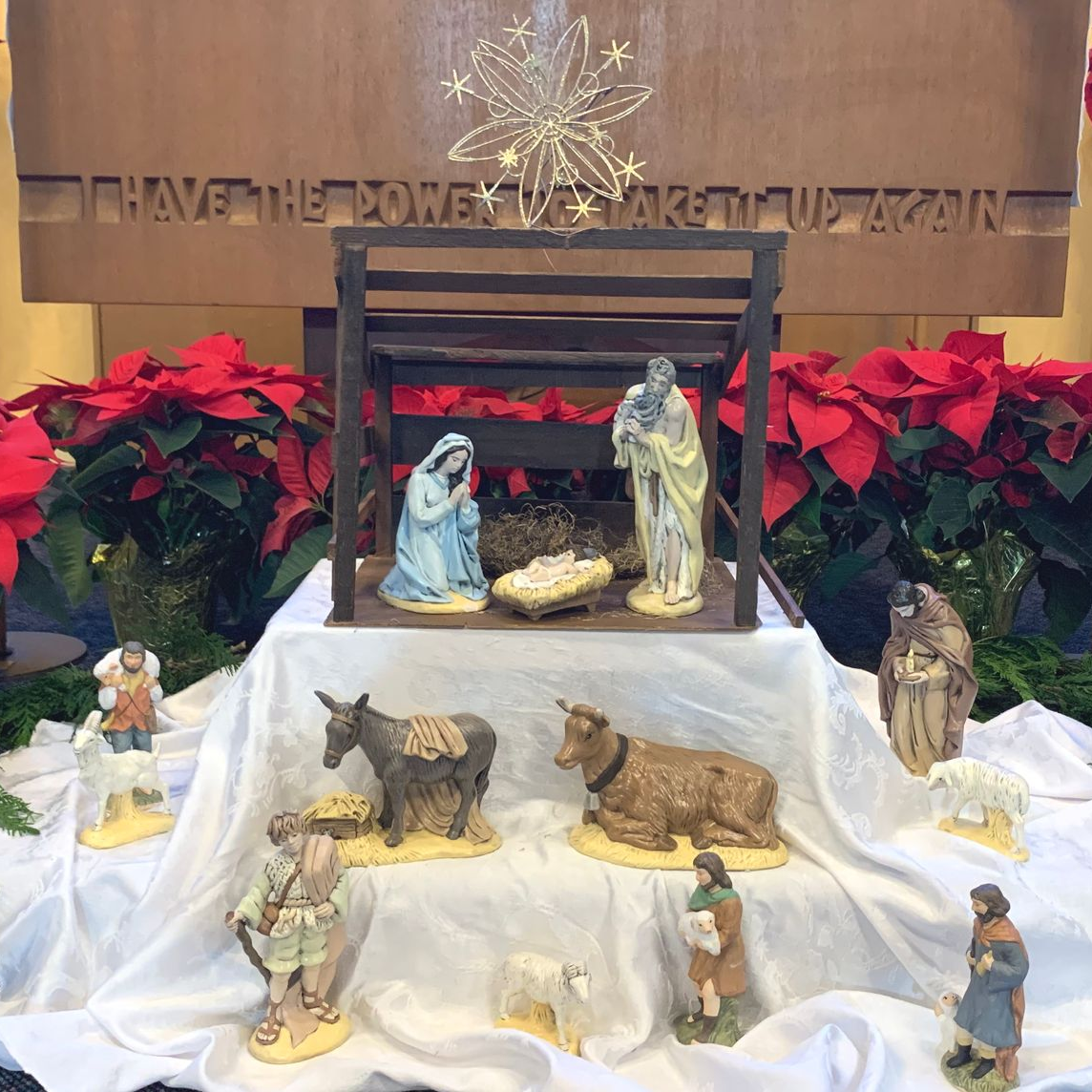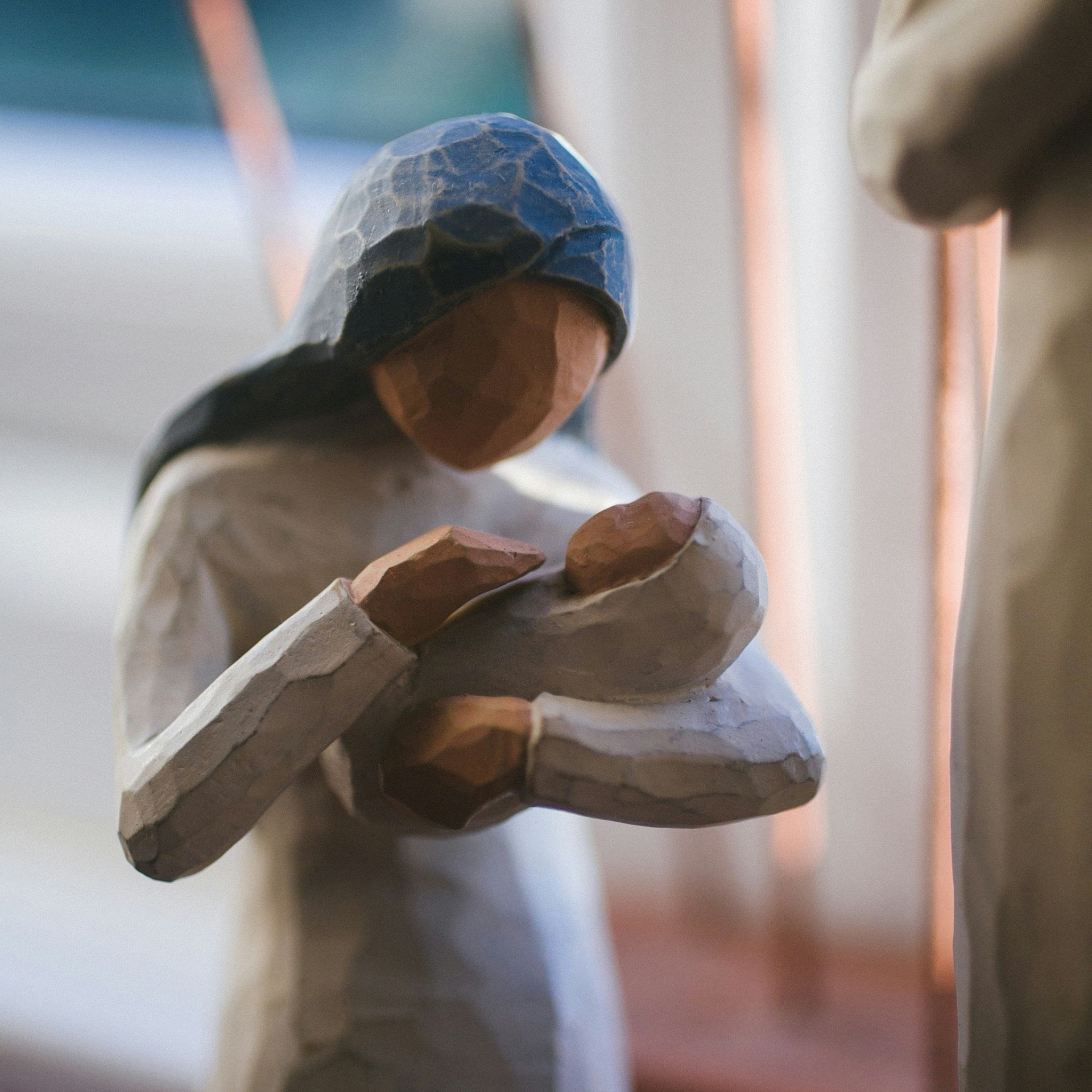The Healing Fire
Don't you dare fit in. Belong ... in all your uniqueness.
2025-33
sermon preached at Church of the Good Shepherd, Federal Way, WA
www.goodshepherdfw.org
by the Rev. Josh Hosler, Rector
The Day of Pentecost, June 8, 2025
Genesis 11:1-9 ;
Psalm 104:25-35, 37 ;
Acts 2:1-21 ;
John 14:8-27
Years ago I was staffing a middle school youth retreat, and a 7th grader dropped this vital nugget of wisdom on me:
“Life is like Tetris. When you fit in, you disappear.”
I later learned that this teenager was transgender—in a time before any of us staffing youth events had any idea how to handle that reality well.
Is it any wonder that most teenagers spend so much time trying to fit in? If you disappear, maybe people won’t bother you … or threaten you. But disappearing doesn’t make for a life well lived, does it? I don’t know anybody who would prefer disappearance to, say, being loved and valued eternally for being exactly who they are. It’s just a question of whether that feels possible.
Now, some people, given the chance, prefer to stand out, to make a name for themselves … to be recognized and applauded for their accomplishments. Some people crave praise because it makes them feel valuable. There’s nothing wrong with that … until it gets out of whack.
Look at this story from Genesis about the people building a giant tower to the heavens. Chances are the ancient Judeans told this story to poke their Babylonian oppressors in the eye for the pomposity of the gigantic ziggurats they built. No matter what we humans manage to achieve, of course, there will come a time when it comes crumbling down. Only God’s work is eternal. To stress that point — to put the humans in their place — God says to the divine council, “Let’s go down and split their speech into languages so they can’t understand one another and can’t get their unified act together! Let’s remind them that they’re only human.”
Notice, if you will, the linguistic connection between “human” and “humility.”
Now, one linguistic connection that isn’t present here has to do with the word Babel. Contrary to what you might assume, this is not where we get our word “babble,” to speak meaningless syllables. The people’s speech isn’t meaningless; it just isn’t understood. And “babble” has no known linguistic roots prior to Old English. No, the Tower of Babel, in Hebrew, is “Bavel,” which means “gate of God.” The humans are trying to crash the gate, to charge into the divine domain and assert dominance. God says in response, “No! There is nothing you can do to approach me without my invitation.” Smackdown!
Does this mean that God would prefer us to shrink, to diminish, to disappear? Of course not. From this point on, the entire story of the Bible is of God engaging with specific people of the specific tribe of the Hebrews. It’s like God says, “Fear not—we will repair the breach that formed between us in the Garden of Eden. But we’re not going to take your quick, easy, and futile way. We will do it my way: deliberately, patiently, step by step, through my direct guidance. Hey, you—Abram—let’s talk!”
Along the way, the Hebrews will swing back and forth, back and forth between wanting to stand out and wanting to fit in. Building a mighty kingdom with a temple and a palace was intended to do both, ironically: to create dominance and swagger just like all the nations all around them so foreign invaders might think twice. It didn’t work. The kingdom first split into two and then was taken to pieces by successive waves of invasion. Political and military dominance only ever leads to the persecution of those with the least power. The nations of today can still benefit from this lesson.
The Tower of Babel beings with frightening uniformity: all people are presumed to be the same, so the expectations of everyone’s lives are clear—no deviation from the norm. This kind of uniformity can indeed bring order from chaos. It can build walls and towers, and it can go on to build empires. But it does so only by squelching differences and eliminating human freedom. God sees that uniformity is dangerous and puts a stop to it by establishing and sanctifying diversity—giving us the gift of many different tongues and cultures and tastes and needs. Our variety prompts us to separate and scatter. But that’s not the end. God’s plan is much bigger than that.
There is a way toward healing that is neither dominance nor disappearance, nor a twisted combination of both. This way is far less instinctive, and it’s far more challenging—because it means denying our baser instincts and embracing God’s Way of Love. The prophets of Israel and Judah knew this all along, and they kept pushing for it. The people listened well enough to preserve the prophets’ writings, but not well enough to heed them.
And so we meet Jesus, who walked among us, called disciples, taught, healed, and eventually was killed. Not even God can win by domination—that just makes everybody lose! Nor can we win by disappearance—that just keeps God’s purposes in us from being fulfilled. We have to walk right into the healing fire of love—the fire of the Holy Spirit that came down on the first apostles on the Day of Pentecost.
See, Pentecost doesn’t reverse the Tower of Babel. It transcends it. And when the Holy Spirit goes to work, you can first expect not order, but chaos of a different quality. The Holy Spirit shows up like a rushing, violent wind of flame, but the comfort she brings is too overwhelming to be expressed. Ever since that Day of Pentecost when many languages were heard and understood, the Holy Spirit has thrilled to be at work in the wreckage of our lives. The Spirit is both comfort and challenge … and She shatters our carefully constructed expectations and categories.
For we humans do have a knack for categorizing each other, starting from a place of fear. When I was in Costa Rica meeting people from Europe, they were quick to remind me that the rise of new forms of fascism is not restricted to the United States. It’s happening wherever people of different backgrounds settle near each other. In many countries, fear is leading people to give up on the benefits of diversity and choose instead the uniformity of Babel.
When life feels out of control, it’s all too easy to imagine that diversity is to be feared. It’s not wrong to wonder about this … but to enforce it is straight-up evil. Any form of “law and order” that hides behind masks, and that lies in wait to entrap the underprivileged at the slightest hint of stepping out of line—all the while protecting corruption at the highest levels of government, the likes of which our nation has never seen before—this is a force I don’t hesitate to describe as demonic.
The Holy Spirit invites us instead to resist evil—to learn well that God is at work in all people, all relationships, all languages. The whole earth will never again have one language and the same words. But we can most certainly learn one another’s languages—and the more the better!
Once you come to understand the sweep of salvation history as expressed in the Bible, you can see plainly the urge to celebrate diversity, the wonder of unexpected grace, and the surprise of love around even the darkest corner. This is the biggest, longest-term consequence of Christ’s death and resurrection! We never get to go back to the way things used to be, but only forward into new wonders and joys. And that means stepping willingly into fire—fire that looks at first like it will burn, but which ultimately brings healing.
So now let’s bring it all the way back to the individual level. Where do you fit into all of this? By not fitting in! Don’t you dare fit in! No, I hope instead that you’ll choose to belong—in all your uniqueness—because of all the things that make you “you”—the marvelous, imperfect, one-of-a-kind creature God made you to be.
I had a big realization this week. I’ve been here at Good Shepherd for nearly seven years, and I love you all. I have no plans to leave! But in returning from my sabbatical and getting back to ministry with all of you, I’ve come to see that I’ve helped build a very task-heavy culture. We’re so organized into teams and committees and task forces, and we’re doing so many good things! But are we seeing one another—really seeing one another—and valuing one another for the unique person each of us is?
Friends, I want to make sure we don’t lose that skill. We’re not truly a church without it. And I would give up all sorts of work in the world—and all sorts of slick, efficient systems—to make sure we extend unique welcome to everyone. I don’t want you to fit in. I want you to stand out! I want you to be able to be among us exactly as you are, in all the divine glory God planted in you—so that you can help change Good Shepherd, not adapt to it. As Irenaeus said all the way back in the second century, “The glory of God is the human being fully alive!” That’s for you, too.
This Pentecost, the Holy Spirit continues to do Her work among us—and, yes, to call us into a share of that work throughout our lives. There’s plenty of work to be done. But right now, I don’t want to emphasize work. I want to emphasize joy. Can we all just spend the summer enjoying one another? Yes, there are tasks we have to attend to, but can we keep setting down the tasks long enough to check in with each other?
Before you send that ministry-focused email … “Hey, how has this person been?”
When you see someone at coffee hour you need to connect with about something pressing … “I wonder what’s giving them joy these days?”
When you meet somebody new at Good Shepherd, before wondering whether they might be a good fit for some committee you serve on … who is this person? What are their unique needs? How is the Holy Spirit already moving in them, apart from anything Good Shepherd might bring into their lives?
I do love you all, and not just the mass of you, but also the individuals of you. It takes time and care to make that clear, so if we’re going to expend energy, let’s put it there. Today I invite you to spot the Holy Spirit in someone and tell them exactly what you see! Give them words of affirmation. Remind them that you care that they exist, not just for what they do, but for the wonderful person God has made them to be. This is how we come to belong, not to a congregation of uniformity, but to a beloved community empowered by the healing fire of the Holy Spirit. Amen.



